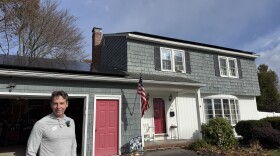New Hampshire communities interested in federal funding to help build more resilient infrastructure are running out of time to apply for the Hazard Mitigation Grant Program.
June 1 is the deadline for towns and cities in New Hampshire to submit letters of intent, which can be submitted here.
The funding comes from disaster declarations President Joe Biden signed after severe flooding last summer. Communities across the state can apply, although the declarations only applied to Cheshire and Sullivan counties.
The funds can be used for projects like controlling erosion, elevating properties, and upgrading culverts to make them more resilient to future issues, including climate change-fueled storms.
Brian Eaton, New Hampshire’s hazard mitigation officer at the Department of Safety, said flooding is the state’s number one natural hazard threat. Eaton said a lot of New Hampshire’s culverts aren’t capable of managing increased risks coming from climate change.
“Those culverts and those stream crossings just aren't adequate anymore to pass the amount of rainfall and potential storms we were experiencing in the past couple of years,” he said.
The amount of project funding the federal government will cover has temporarily increased to 90%. Interested communities will only need to cover 10% of the cost of those projects.
About 30 communities have already expressed interest, Eaton said, but not all of those projects will ultimately get funding.








